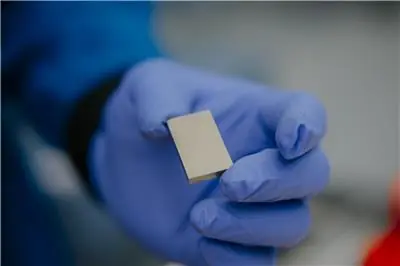The Department of Defense’s multibillion-dollar investment in a United States rare earths producer is unconventional, but industry analysts say it is necessary to compete with China.
MP Materials, a rare earth producer, entered into an unusual agreement with the Department of Defense earlier this month to help create a rare earth magnet supply chain by constructing the company’s second U.S. magnet facility. The company said it would also add heavy rare earth separation capabilities to its Mountain Pass facility in California. The deal will give the federal government a 15% stake in MP Materials, an uncommon arrangement.
“We haven’t used equity as a tool before, so it’s the use of a new tool and it’s really a strategic alignment of economic support to what is a very crucial national security imperative,” Gracelin Baskaran, director of the critical minerals security program at the Center for Strategic and International Studies, told the Washington Examiner.
Rare earth magnets are essential for advanced defense technologies, including those used in missile guidance, radars, and aircraft. The administration has taken steps to reduce reliance on foreign adversaries, such as China, for rare earth and critical minerals.
The agreement includes various commitments that extend for at least 10 years, such as convertible preferred equity, warrants, loans, and a price floor, MP Materials said.
The DoD’s agreement resembles strategies that the Chinese government uses to boost its supply chains, Baskaran noted, adding that “China has long provided substantial financial support to its mining industry.”
For instance, Baskaran said, between 2009 and 2023, China provided $230 billion in subsidies to the Chinese electric vehicle company BYD. China has created a cohesive mine-to-market supply chain, making it difficult for American firms to compete with that model because it operates outside of free-market practices.
“For U.S. companies and Western companies, they’re going to need a counter level of price support or they’re always going to be less competitive than Chinese firms,” Baskaran said.
China currently produces about 90% of the world’s rare earth magnets. Many have raised concerns that the U.S. reliance on China for key defense sector components could pose a national security issue.
Arnab Datta, managing director of policy implementation at Employ America, told the Washington Examiner that the package expands the government toolkit in a “really good way.”
The equity stake in the company and the provisions of the deal meant to ensure a price floor “are all tools that we need in our toolkit to compete and reduce our vulnerability to China,” he said.
But Datta said the agreement presents a high level of risk.
“The one thing that worries me is a lot of money being put into one company,” Datta said. “This is over a billion dollars of investment one way or another,” added that the Defense Production Act, which allowed the Pentagon to enter into the deal, does not provide unlimited funds.
“It’s a positive step. But it’s a serious commitment,” Datta said, adding that time will tell how the collaboration develops.
Specifically, the DOD entered into a 10-year agreement with MP Materials that establishes a price floor commitment of $110 per kilogram for Neodymium-Praseodymium (NdPr) metal and oxide products necessary to produce permanent magnets.
Drew Horn, CEO of GreenMet, a Washington-based project financing company, told the Washington Examiner that the agreement is intended to be comprehensive. He added that the NdPr price floor aims to prevent Chinese manipulation of prices that could put MP Materials out of business.
“This is meant to be a major signal from the U.S. government Defense Department that they’re willing to intervene and support U.S. initiatives and protect them from price manipulation and other measures from the [People’s Republic of China],” Horn said.
Horn said he believes the administration’s intent is “to demonstrate that there are tools that haven’t been used for decades that can be used now to actually really ride the ship here.”















